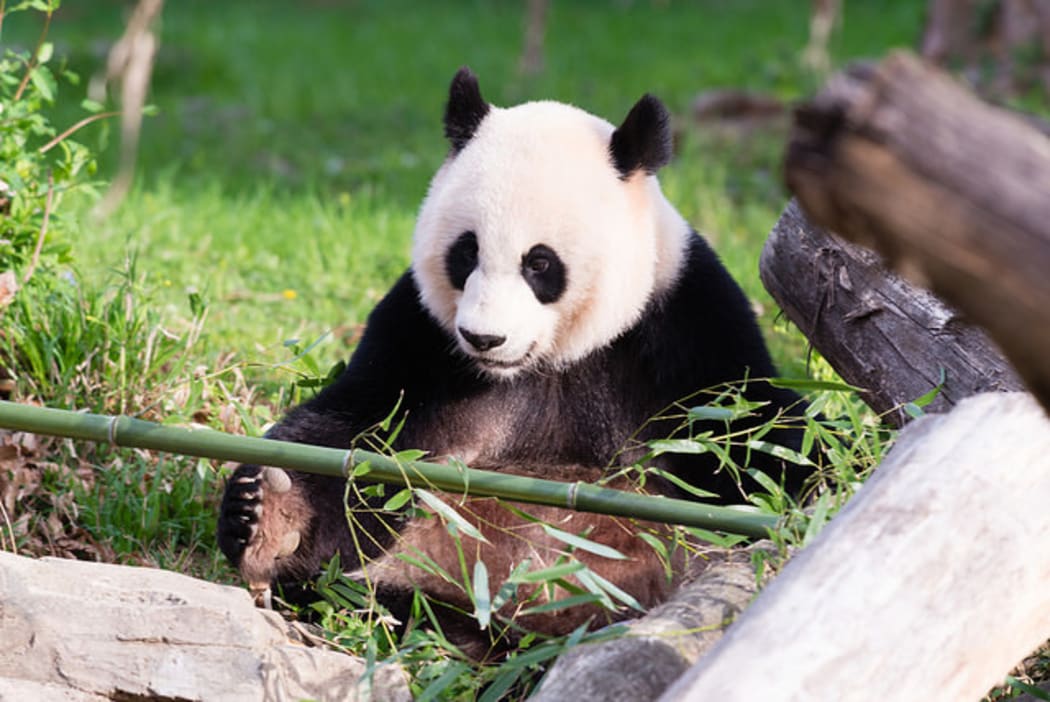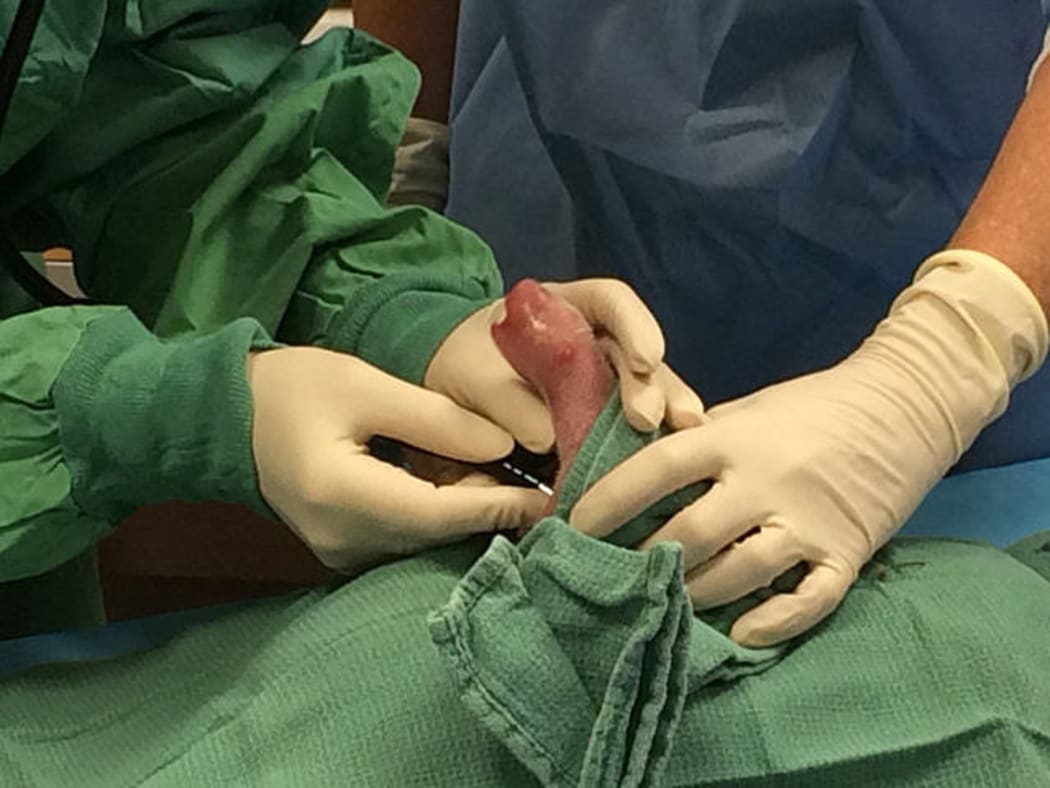A giant panda the Smithsonian National Zoo in Washington DC has given birth to two cubs, hours apart.

A file photo of Mei Xiang, pictured earlier this year. Photo: Connor Mallon/Smithsonian's National Zoo
Keepers at in Washington DC only discovered Mei Xiang was pregnant during an ultrasound scan last week.
The zoo's director Dennis Kelly said the cubs were small and very loud.
Giant pandas are one of the most endangered species in the world and are notoriously hard to breed in captivity.
The National Zoo is one of only four zoos in the US to have pandas, which are on loan from China.
Mei Xiang, who has two other offspring, is one of the zoo's star attractions and a Panda Cam on her enclosure crashed within seconds of the birth being announced because of the volume of interest.
Female pandas are able to conceive for only two or three days a year, leading to a very low reproduction rate.
They give birth to twins roughly half the time.

One of the giant panda cubs born Aug. 22, 2015 at the Smithsonian's National Zoo being examined by veterinarians. Photo: Pamela Baker-Masson, Smithsonian's National Zoo
Mei Xiang was artificially inseminated with sperm from the zoo's resident male Tian Tian and a panda named Hui Hui from Wolong, China.
The zoo's panda webcam crashed within seconds of the births being announced due to the volume of people trying to view it.
It will not be known for a while which is the father, or whether the cubs are male or female.
It has previously taken months before Mei Xiang's cubs have been introduced to the public.
The panda population is threatened by habitat loss as land is increasingly inhabited by humans, with about 1,800 pandas left in the wild in China.
However, the number living in the wild in China has gone up over the last 10 years.
- BBC

